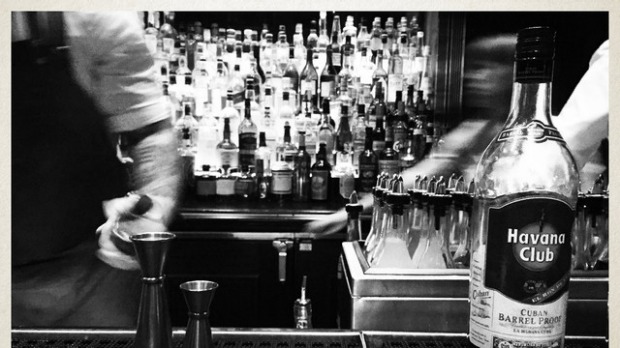
Cuba’s rum gets boost from tourism while awaiting US entry
The Parisian distiller Pernod Ricard is toasting the thaw in US-Cuba relations.
After decades on the US no-go list, Cuba is developing into a hotspot in the Caribbean, spurring interest by companies ranging from Airbnb to Netflix.
Pernod was an early pioneer, joining with Cuba’s state distiller Corporacion Cuba Ron to produce Havana Club rum for world distribution, starting in 1993. Since the US agreed to normalise relations with Cuba in December, there’s been a “double digit” sales bump in that country, according to the venture’s managing director, Jerome Cottin-Bizonne. And he sees more growth ahead.
“We’ve definitely seen a positive impact on our sales,” Cottin-Bizonne said in an interview in Havana. “And if you look at the longer-term, Cuba will be a source of growth because of the influx of tourists and the development of the economy.”
Cuba’s government eventually anticipates that 10 million Americans will visit annually, up from about 1 million this year under newly liberalised travel rules for US citizens. The country annually receives about 3 million foreign visitors a year, mostly from Canada and Western Europe, and arrivals this year are already up 14 per cent over the same period in 2014, according to the government’s data.
Havana Club is available in more than 120 markets worldwide, and its 50 per cent share within Cuba accounts for about one-fourth of the venture’s 4 million cases in annual sales. Now, the Havana Club partnership is eagerly awaiting an easing of the US trade embargo on Cuban goods that dates back more than 50 years, according to Cottin-Bizonne.
Local drinks
“We have absolutely no idea when we will be able to sell our rum in the US,” he said. “But we are prepared.”
In Cuba, tourists are often eager to try the local drinks, said Yassel Diaz, 30, a bartender at the Saratoga Hotel in Havana. Cuban rum is a staple for many of them.
“Many clients are told by previous visitors to try the rum, especially Havana Club,” which goes into daiquiris and mojitos, his most popular concoctions, Diaz said. The local rum is also “used to make lots of the new cocktails that the city is famous for.”
Pernod’s US unit already sells brands including Absolut Vodka, Chivas Regal whiskey and Seagrams gin. That existing distribution network would make it easy for Havana Club rum to catch on in the US. Plus, after being unavailable in the US for decades, the drink would benefit from a “forbidden fruit” effect that may help it quickly gain market share, Cottin-Bizonne said.
Bacardi challenge
It will face a challenge from Bacardi, the world’s biggest rum maker, which is already selling a Havana Club-branded rum in the US that’s made in Puerto Rico.
Pernod is embroiled in a trademark dispute with Bacardi over use of the name. It has registered the name Havanista for potential use in the US if the embargo is lifted, while maintaining its claim on the Havana Club name.
The Havana Club trademark was first used in the 1930s by Cuba’s Arechabala family, whose distilling company was confiscated by Fidel Castro’s revolutionary government. After the trademark owned by the Arechabalas lapsed, the state-owned Cubaexport registered it in the US in 1976 and assigned it to the Pernod joint venture in 1993.
“We hope that with the new relationship between Cuba and the US we will be able to find a solution,” Cottin-Bizonne said.
(From: Business Day)


